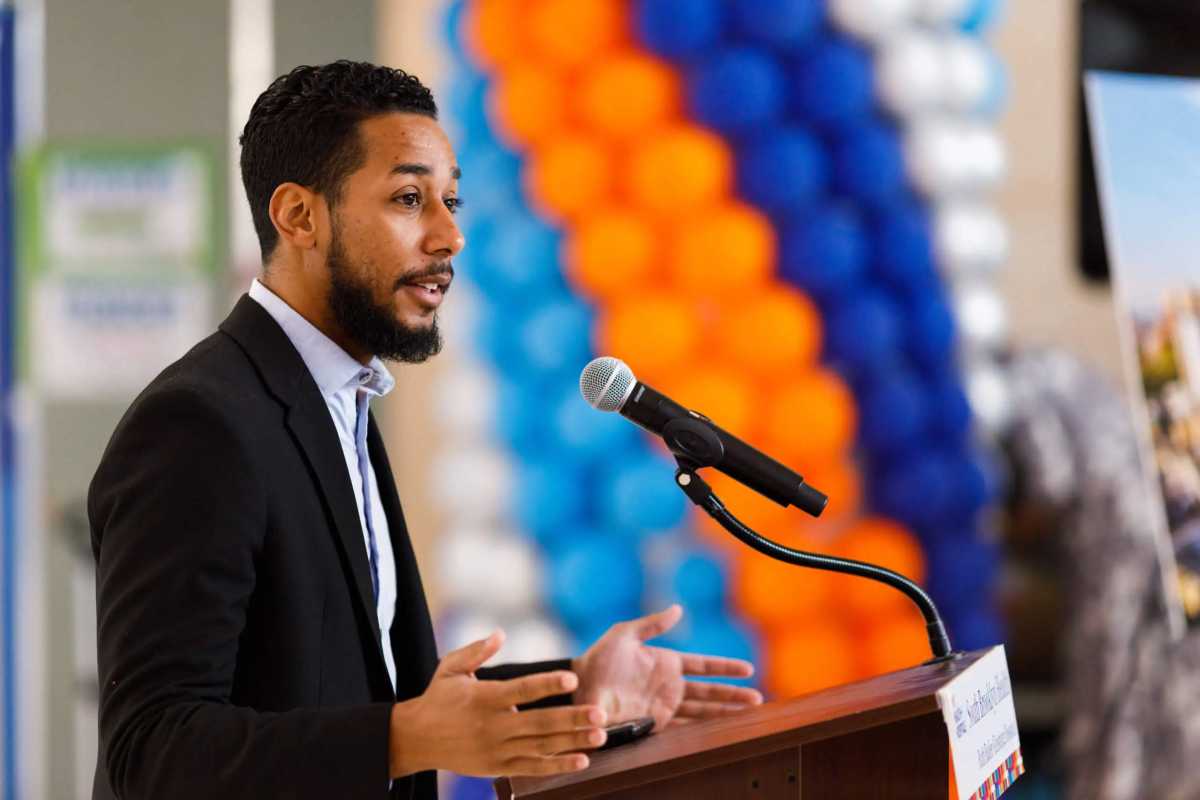Democratic State Senate candidate Ross Barkan said he talked to the people of his district, and they said they wanted to see changes in their community, one being an improvement to the city’s transportation system.


The candidate brought a petition to the office of the official he is trying to unseat, State Senator Marty Golden (R-Bay Ridge, Dyker Heights, Bensonhurst, Marine Park, Gerritsen Beach, Gravesend), with over 800 signatures collected to improve the handicap accessibility in his district.
There are 12 subways stops in the 22nd Senate District and none have elevators. This hinders many from being able to access the subway in the area.
“People with disabilities, parents with strollers, someone with an injury, they can’t get into the subway,” Barkan said.
Barkan said the signatures took about a month to acquire. He collected the signatures going door-to-door, instead of collecting the signatures online.
“When we started this campaign we wanted it to be about issues, about policy, about a vision. Transportation is very central to this campaign,” he said.
Barkan noted that Golden has been in a position of power within the MTA as a member of the review board and yet has failed to do something to make the district better.
“Marty Golden has been on the MTA capital review board, he has been in the majority for almost 15 years, and there’s just been no fight for accessibility,” Barkan said.
Along with his plan to improve the accessibility aspect of transportation, Barkan wants to see changes in the system that will affect everyone, such as calling for the modernization of the signaling network of the MTA, which is over 100 years old.
Barkan has more initiatives planned in the community that are in the works, which he says came from his interactions with the community.
“A big part of this campaign is actually listening to people, going out into the district, going door to door, getting in the streets and just not opening from up high,” he said.
Activists accompanied Barkan to the delivery, all with reason to want to improve their everyday experience getting around the city.
Michael Harris, a disabled activist that delivered the petition with Barkan, said the MTA has a legal obligation to finish 100 accessible stations by 2020, Harris wants to make sure that the city continues working beyond that requirement.
“They could make more stations accessible, or they could stop,” Harris said, “I want to make sure they don’t stop.”
Harris has had problems with elevators in subway stations in the past, and he says he’s been told by MTA officials and the police to go to other stations with working elevators in them, sometimes adding hours to his commute.
“If there’s no stations in the places people live, you can have all the stations you want in the central district and the financial district, and they won’t have any way to get there,” he said.
To get to Golden’s office to deliver the petition, what is normally a 25 minute trip for most, took an hour and 40 minutes for Harris because of this lack of accessibility.
“I think it’s really important that the task force Marty Golden sits on looks at this and looks at the 2020-2024, and says, ‘Ok, we made some momentum, let’s look at how much money we’re saving doing this and continue.’”
Harris says the next step is for the city to allocate part of the budget to include making the subway system more accessible, and although he admits the city will never be able to put them in every station, having them in residential areas is crucial.
“I shouldn’t have to travel eight blocks to then spend 15 minutes to get to the nearest accessible station when I live five blocks from a subway station,” he said.










